ScotRail and Southern train strikes hit both ends of UK
- Published
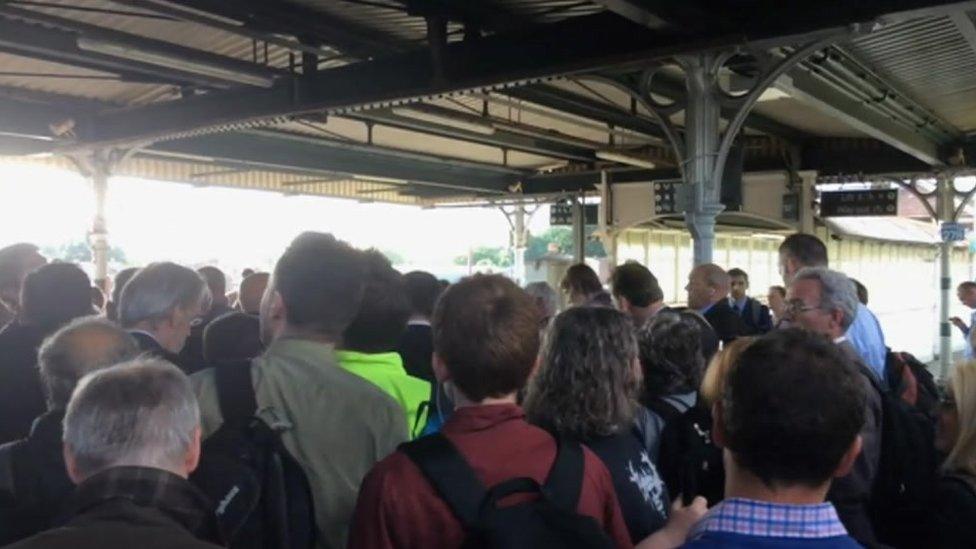
About 60% of services are running on Southern and 70% on ScotRail
Railway passengers have been warned to expect delays, disruption and cancellations during two separate 24-hour strikes on Southern and ScotRail.
RMT members voted for the action in protest at more driver-only-operated (DOO) trains and a change in the role of conductors.
Services across Scotland and south-east England have been cancelled.
ScotRail said other trains would be busier than normal, external while Southern issued a revised limited timetable, external.
BBC transport correspondent Richard Westcott said strike days, ironically, were not necessarily that bad because many people choose not to travel.
He said about 60% of Southern services were running. ScotRail said it expected to be able to carry in the region of 70% of the normal number of passengers.
Southern services have been hit by staff shortages - blamed on high levels of sickness - in recent weeks, leading to protests by travellers in Brighton.
Follow live updates on Southern industrial action
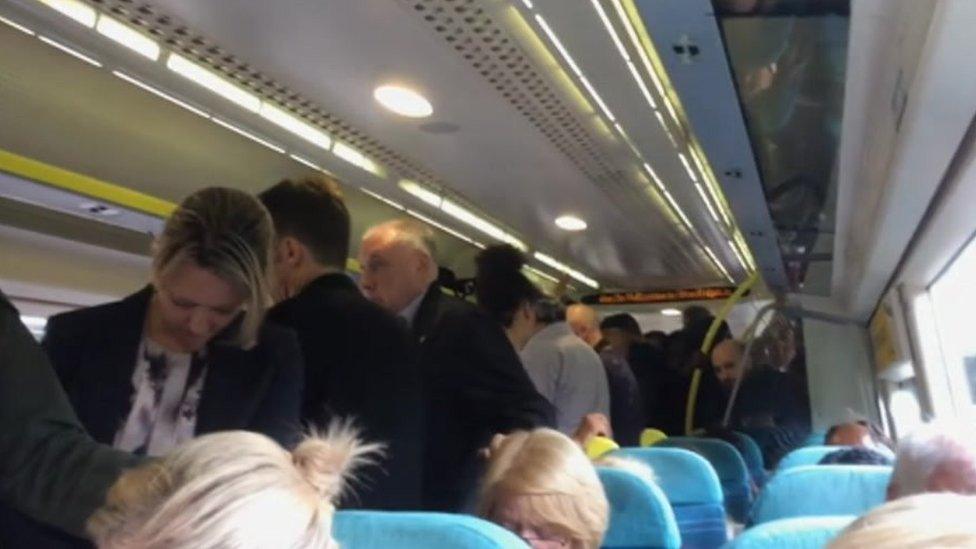
Commuters have complained about delays, cancellations and over-crowded services
Both companies claimed the action was needless.
The union is in dispute with Southern over the introduction of driver-only-operation (DOO) trains on which guards would no longer open and close doors but would still be on trains.
But RMT members believe the rail operator intends to remove guards from trains completely, a move it claims would be "catastrophic for safety".
The Rail Safety and Standards Board (RSSB) has said a number of studies into DOO have not identified any increased risk from dispatching a train without a guard present.
An RSSB spokesman said the removal of any possible miscommunication between a driver and a guard "could potentially deliver safety benefits".
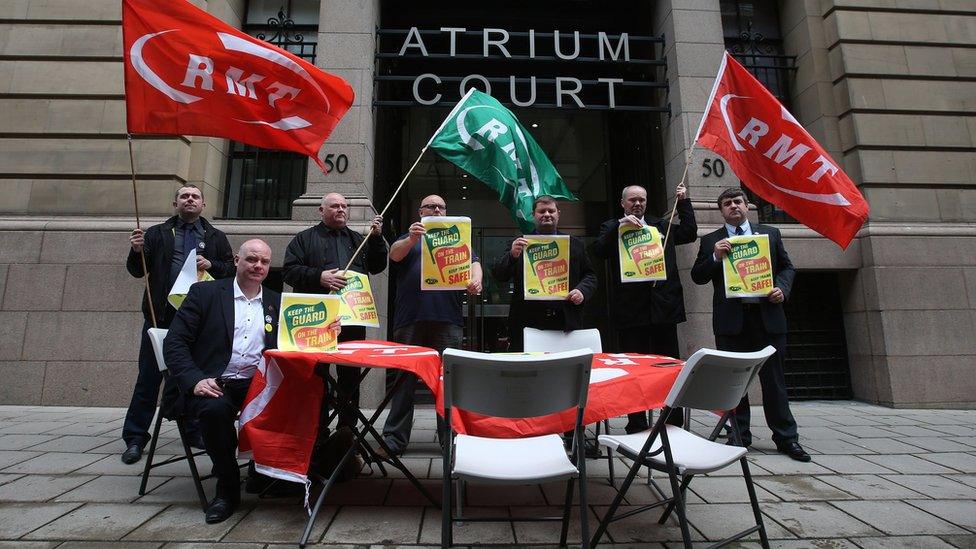
The RMT has staged protests outside rail company offices in Glasgow and London
The strikes follow earlier stoppages on Southern and the breakdown of talks at conciliation service Acas between ScotRail and the RMT union.
BBC South's transport correspondent, Paul Clifton, said Govia Thameslink - which operates Southern - carried 620,000 passengers a day, adding: "This dispute is messing up countless lives now, not just on strike days.
"Yesterday, again, dozens of services were cancelled because there weren't enough staff to run all the trains."
He said the dispute had become "a vitriolic slanging match" and both sides had been to conciliation service Acas but found no common ground.
The rail operator had decided to impose the changes from August whether the guards liked it or not, he said.
'Lost patience'
Commuters said all sides were at fault.
Peter Simpson, of Worthing, said he blamed the company and the government, but he had also lost patience with the staff.
And Chris Snowden, from Shoreham, said Southern should lose its franchise but he believed it [disruption] was the union's fault.
He said: "A lot of trains in Britain and around the world work without having conductors closing the doors."
Both Mr Simpson and Mr Snowden stayed at home on Tuesday.
Passengers' reaction on Twitter
Rail minister Claire Perry said new trains that were ready to go were being resisted by union leaders and described the dispute as "simply about who presses the button to open doors".
She said: "There's been a lot of conversation about safety. We have one of the safest railways in the world. And we heard yesterday from the rail regulator that this technology that has been around for 30 years is completely safe."
Referring to recent calls for the operator's franchise to be removed, she added: "This dispute is not about who is running the franchise. It's simply about some union bosses trying to hardline their members into a dispute that I don't think is in anyway justified."
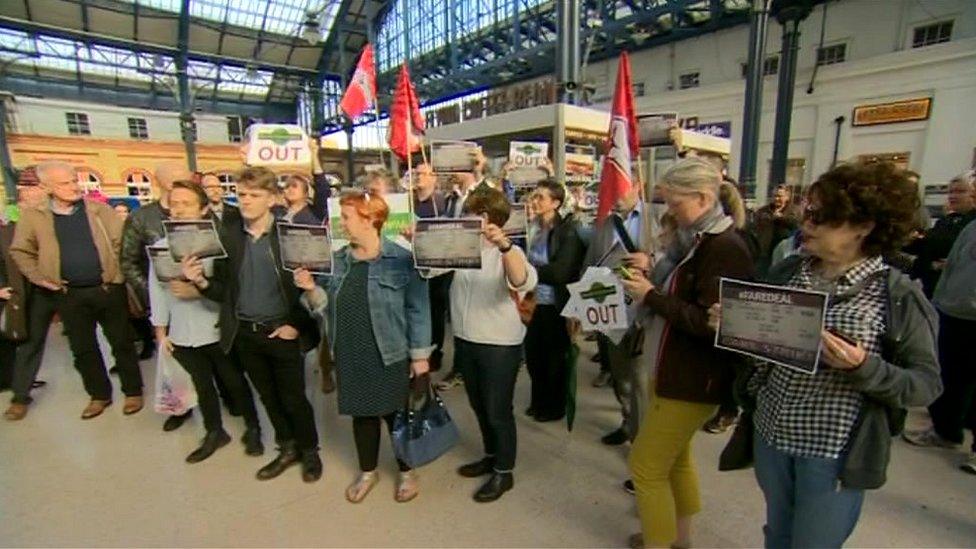
Commuters have staged protests over ongoing disruption

Lines closed
Both companies issued maps indicating which services would be cancelled.
Southern plans, external no trains between:
Horsham - Dorking, Redhill - Tonbridge, Oxted - Uckfield
Haywards Heath - Seaford, Chichester - Havant and Eastbourne - Ashford
ScotRail cancelled trains on 15 routes, external and warned replacement buses were "most unlikely" between:
Edinburgh - North Berwick/Dunbar, Edinburgh - Aberdeen
Glasgow Queen St - Stirling/Dunblane/Alloa/Dundee/Carnoustie/Arbroath
Stranraer/Girvan - Ayr/Kilmarnock/Glasgow Central, Anniesland - Falkirk Grahamston
Glasgow Central - Inverness, Glasgow Central - Edinburgh via Shotts, Glasgow Central - Barrhead/Kilmarnock/Dumfries/Carlisle
Inverness - Elgin and Inverness - Tain

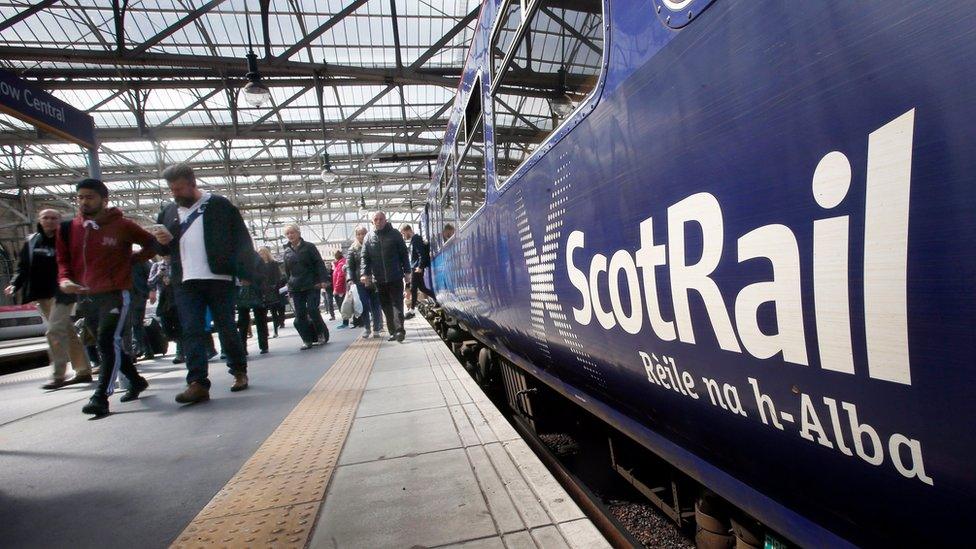
ScotRail bosses said the union had "refused point blank" to talk to them
Southern said services were largely running to the revised strike day timetable, with disruption expected all day and likely to affect some early morning services on Wednesday.
The company said 90% of Southern services into London Bridge and 87.5% of services into London Victoria arrived on time between 06:00 BST and 09:00 BST.
Operator Govia Thameslink (GTR) earlier said the strikes were "completely unnecessary" and called on RMT members to "think again and put passengers first".
"We apologise to our passengers for the disruption this will inevitably cause."
GTR warned some last connecting trains would leave London "as early as 16:30".

Analysis by Richard Westcott, BBC transport correspondent
Two hugely disruptive strikes, two different train companies, same issue.
The unions want to draw a line in the sand over something called Driver-only-operation (DOO), where the driver is asked to close the doors at stations, instead of the on-board conductor.
Drivers have CCTV in the cabs to check people are clear of the doors, but the unions say it is still not safe and passengers will get hurt.
They are also worried it is a Trojan horse policy to phase out train conductors in future, to save money and cut staff. The companies say they will keep the conductors on board, they will just be helping passengers instead.
We have had DOO trains on Britain's railways for decades. The regulator (ORR) says it is happy they are safe and so does the Rail Safety and Standards Board but the unions do not want any more.
It is ScotRail and Southern this time around but this issue could flare up on any number of different lines in future.
People are talking about a "war" on the trains, between the unions on one side, the companies and the government on the other.
Neither side wants to budge, and passengers are stuck in the middle.

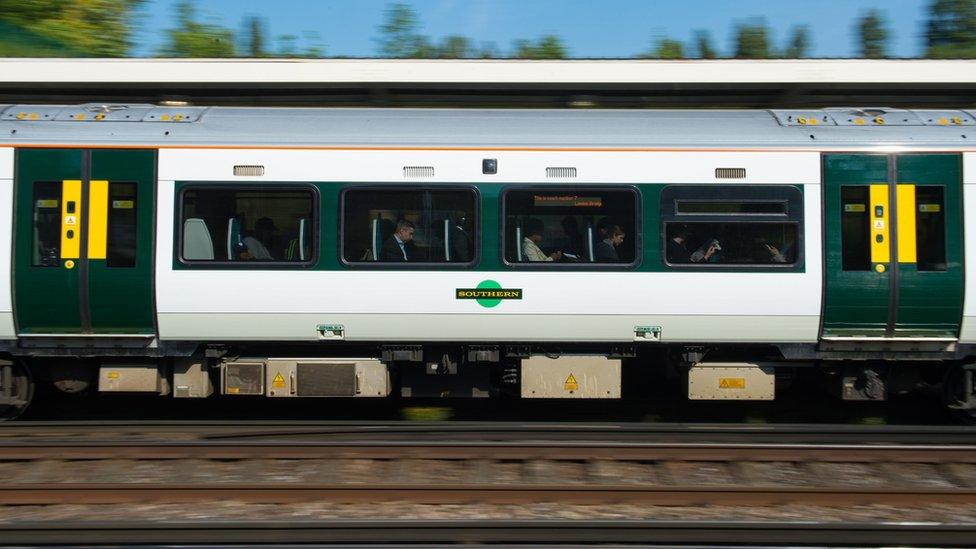
Services across Scotland and south-east England have been cancelled
The RMT union said Southern's performance figures were at an "all time low".
General secretary Mick Cash said from the picket line: "Our members on Southern are rock solid in support in support of the action this morning in the right to stop the basket-case GTR franchise from ripping apart the safety culture on our railways in the drive for ever-fatter profits."
He said the union was receiving "brilliant support from passengers on the picket lines and social media".
TUC deputy general secretary Paul Nowak said nobody wanted a strike but rail workers deserved support.
He said: "Trains need more than just a driver - they need other properly trained staff to ensure that passengers are safe."
ScotRail managing director Phil Vertser said the RMT had "refused point blank to talk to us about how we modernise and improve Scotland's railway".
He added: "Instead they have hidden behind a national policy that says that nothing must ever change.
"Tens of thousands of our customers will be disrupted and hundreds of our own people will be hit financially as a result of their intransigence."
- Published17 June 2016
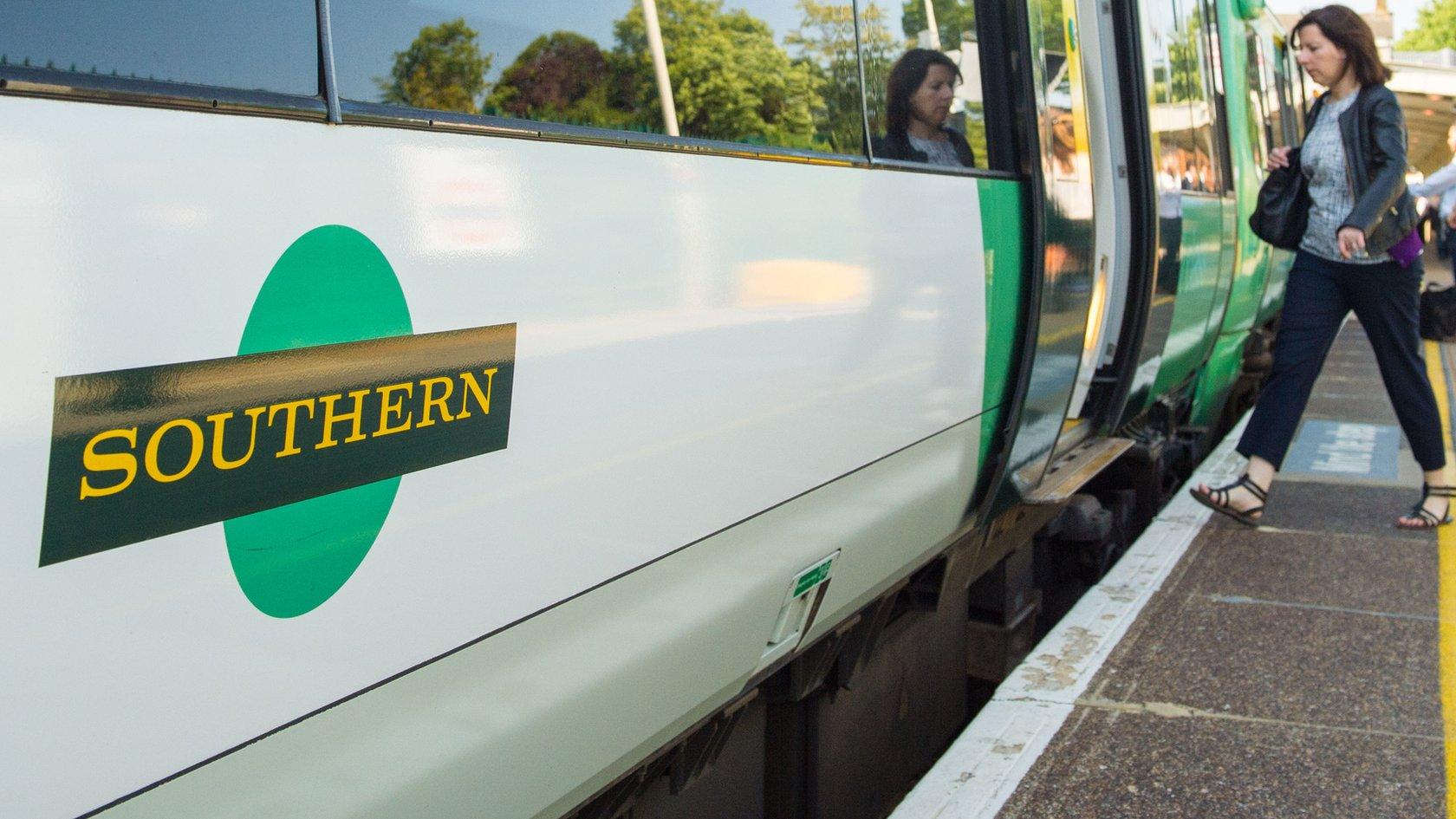
- Published21 June 2016
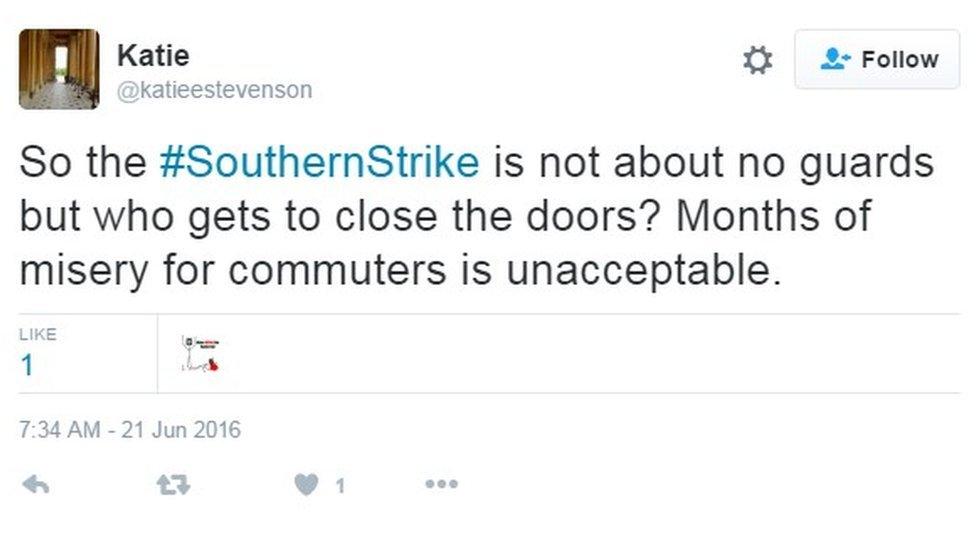
- Published20 June 2016
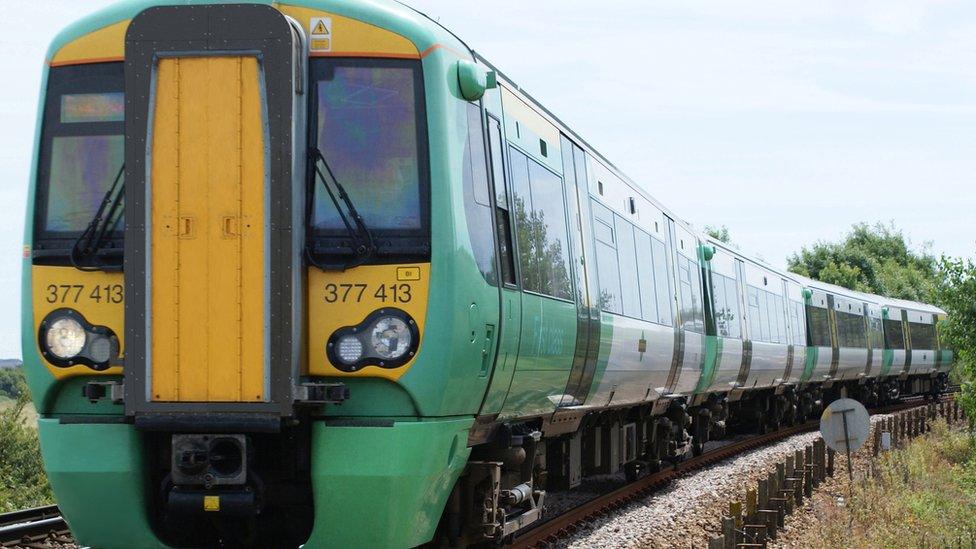
- Published20 June 2016
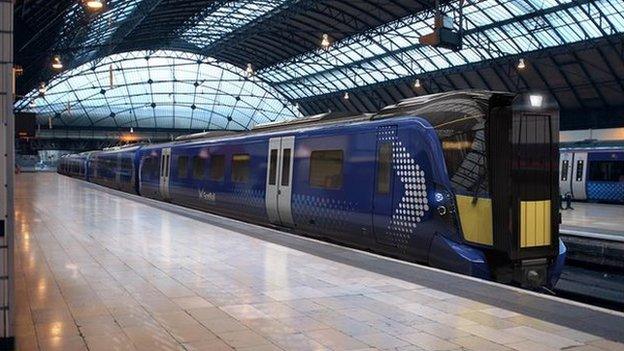
- Published16 June 2016
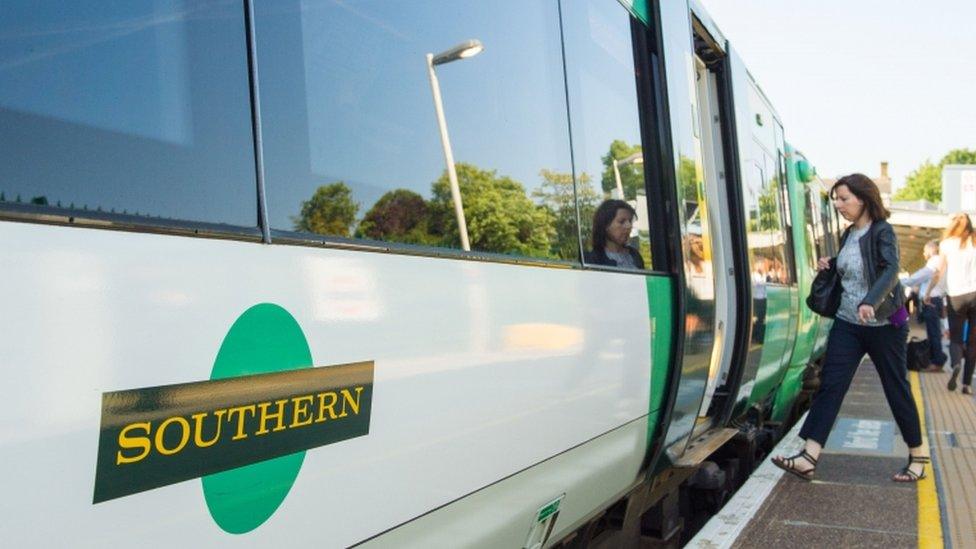
- Published16 June 2016
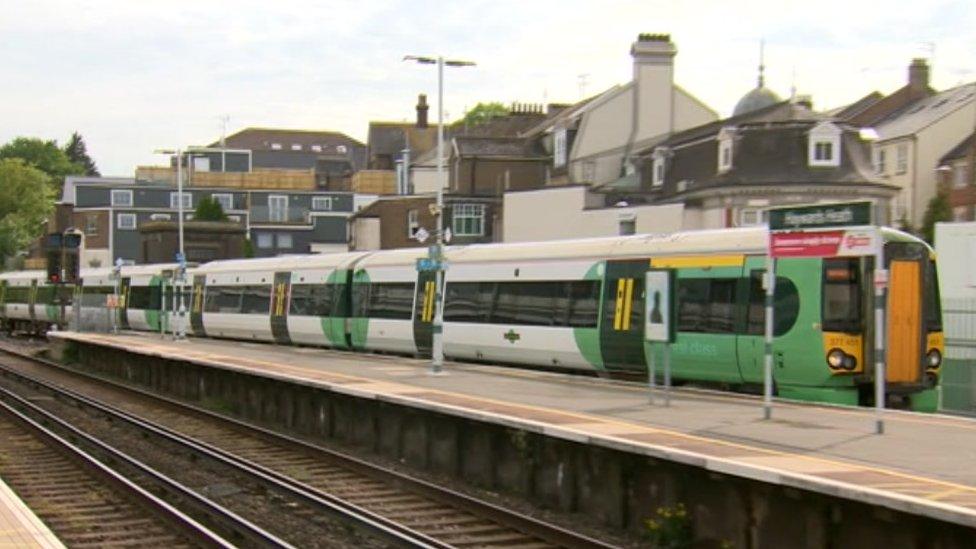
- Published15 June 2016
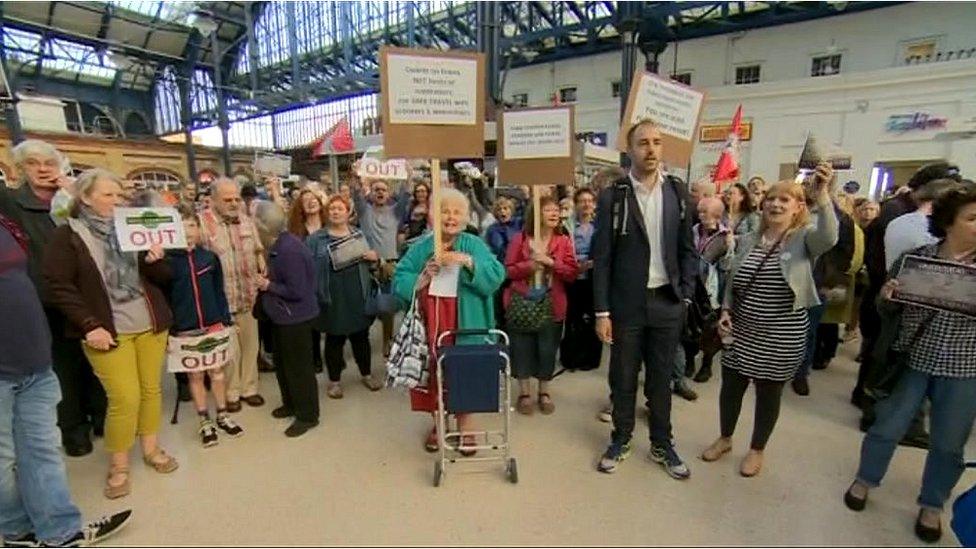
- Published14 June 2016
